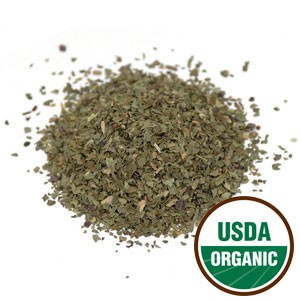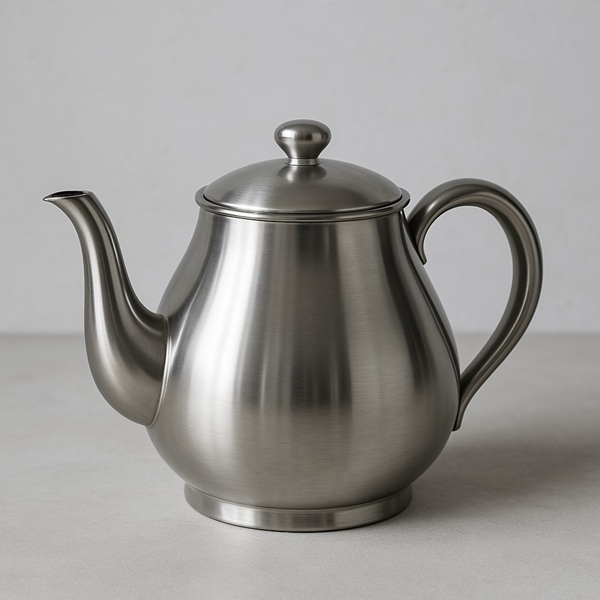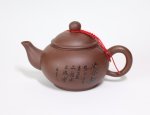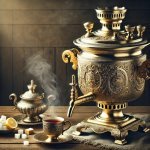Basil Tea
-
An Aromatic Infusion
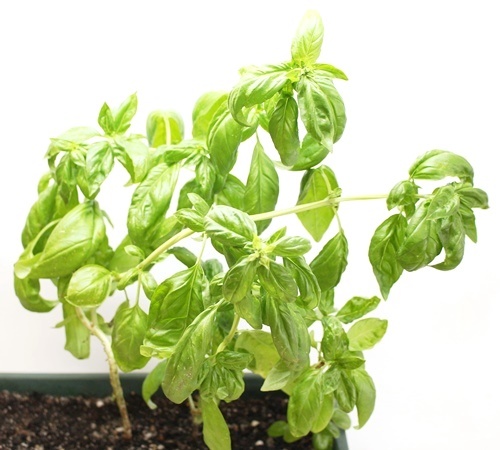
Commonly used to add flavor and aroma to Italian dishes, the leaves of this herb have also been made into herbal infusions for the health benefits it is said to offer those who drink them.
We will be focusing on sweet basil, which is, as you will see, just one specific species of basil, but it is commonly used to make a simple infusion that may be enjoyed on its own or combined with others for the benefit of its wonderful aroma.
Come and read more about this aromatic herbal tea!
What is Basil?
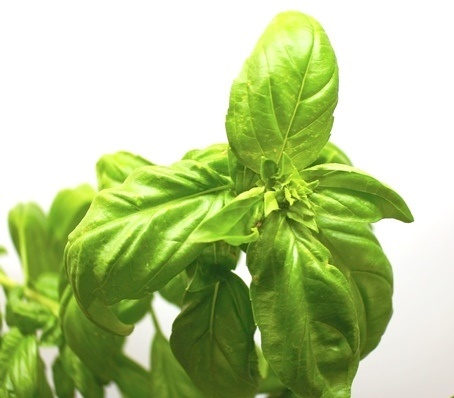
In Latin, sweet basil is called ocimum basilicum.
Ocimum is the genus that includes several species of basil and it is derived from the Greek word for to smell , clearly referring to the aromatic nature of these herbs. Another common name for sweet basil is St. Joseph s Wort.
This herb comes from the mint family and loves warm and temperate climates with plenty of sunshine. It is an annual plant that can reach 20cm to 60cm in height, its leaves are oval with white or red flowers. The stems of the basil plant are generally hairy.
Sweet basil can be placed in a pot near a window and you will have fresh basil to make a cup of tea whenever you need it. It s a great plant to start an herb garden when you don t have a lot of room.
Types of Basil
There are many different types of basil, varying in size, smell, origin and chemical components, so the health benefits derived from each basil variety may differ. Let s take a quick look at the most common varieties of basil:
- Sweet basil (Ocimum basilicum): this variety of basil may have small to large leaves and it is considered both sweet and spicy. Commonly used in Italian cuisine.
- Holy basil / Tulsi (Ocimum tenuiflorum or sanctum): mostly present in the traditional medicinal practice of Ayurveda in India, where it is revered as a sacred herb. It is frequently consumed as a tea for its anti-stress properties.
- Lemon basil (Ocimum citriodorum): best known for its strong citrus aroma, this variety of basil is an essential item in Asian cuisine.
In this page we will only look into the properties of sweet basil. For more information on Holy basil, please visit the page: Holy Basil Tea
History of Basil Tea
For thousands of years, basil has been used both for culinary purposes and for its healing powers in the form of infusions. It was first consumed as a tea in India and Bangladesh, taking part in religious rituals as well as traditional medicinal practices.
In the 16th century, basil plants were brought over from India to the Middle East and then to Europe, particularly to the Mediterranean countries. In the 17th century, European settlers brought this herb over to the American continent. Over time, basil started to be cultivated in many countries around the world.
Today fresh or dried basil is still greatly used as a condiment adding flavors and aromas particularly in Italian cuisine as it pairs beautifully with pasta and tomato sauces, but also in eastern cuisines such as Indian, Thai and Vietnamese dishes.
Basil is present in herbal teas and it is used to flavor drinks. As an herbal tea, it is still used as a form a traditional remedy because of its medicinal properties. In fact, scientific studies are being undertaken to test many of these traditional health benefits of basil tea.
Basil Tea Benefits
Basil is an herb rich in many elements, such as vitamins A, C and K, calcium, iron, magnesium, and potassium. It also contains a high level of antioxidants and essential oils that may provide a number of benefits to your health.
Digestive Tea
- Basil tea may be used to treat a weak stomach and improve overall digestion. It is said to stimulate the digestion, helping to sort out cases of gastric pains, stomach cramps and spasms, and indigestion. If you suffer from acid reflux, you may wish to give this herbal infusion a try as bacteria tend to thrive in acidic environments.
- Does stress cause you to have gastric problems and loss of appetite? Then consider drinking this tea to calm your stomach and prevent you from adding stomach pains to your list of worries. You will get your appetite back, too.
- This tea is said to restore your bowels to good health. It is considered a laxative that could help in cases of constipation, bloating and flatulence and at the same time it is said to help clear out toxins in case of diarrhea or intestinal colic bringing back the health intestinal flora.
- Basil infusions have also traditionally been used to clear parasites and worms from the digestive tract.
Liver Detox
- Basil tea may be used to help detoxify the body. By cleansing the liver from excessive fat buildup in this organ, it may help it to work better, stay healthy, protecting it from possible diseases.
- A cup of this tea will allow your liver to work better and boost your metabolic rate. This may lead to your body being able to get rid of unnecessary fats faster and create an overall detoxifying effect on the body.
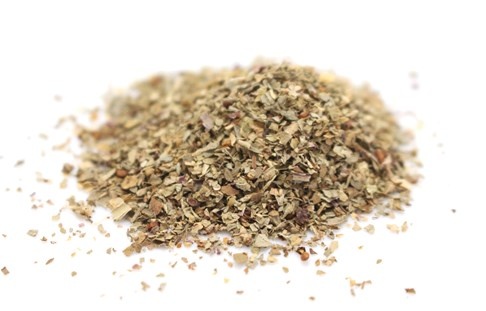
Calming Tea and Natural Sedative
- Basil tea is considered a natural painkiller because it contains analgesic and sedative properties. It is said to help bring relief from discomfort and pain. This is particularly helpful in the presence of inflammation. As a painkiller it may also reduce painful tension headaches.
- This infusion is said to reduce stress and anxiety. It is considered a natural adaptogen, which means that its helps the mind and body to better adapt to different types of stress. Basil tea is also said to soothe nerves and lower blood pressure reducing the health risks associated with a stressful mind and metabolism.
- In addition, this herbal tea may also help to relieve mental fatigue and melancholy. It may be used to help with mild cases of depression, but make sure to talk to your doctor, particularly if you are taking any medication for this condition. Basil tea may improve your mood by boosting the production of dopamine and serotonin.
- Basil tea is said to also help with insomnia, a natural side effect of its calming and anti-stress nature. A healthy amount of sleep each night will also help to improve your mental alertness.
Heart Tonic
- One of the greatest benefits of basil tea is its anti-inflammatory effect on the heart. Drinking this tea is said to help protect and strengthen the whole of the circulatory system, not just the heart but also blood vessels.
- This antioxidant herbal tea is also said to help lower blood pressure and reduce cholesterol levels, thus preventing blood clots and reduce the risk of stroke, heart attacks and other types of cardiac problems.
Diabetes Management
- Drinking basil tea may help you to manage the symptoms of diabetes. It is said that this herbal infusion lowers blood sugar level and improves the health of your pancreas, which is responsible for the production of insulin.
- At the same time basil tea is known for lowering cholesterol and triglyceride levels that pose a daily risk for diabetics.
Cold Symptoms and Respiratory Issues
- If you have a cold, then consider drinking a basil infusion. It is said to help thin mucus and clearing lungs and sinus. It acts as an expectorant, helping you to expel harmful toxins from your respiratory tract and reversing possible damage to the lungs, soothing a sore throat.
- Basil tea may also be used in the case of the flu as it may not only clear bacterial infections, but also reduce fevers and keep your temperature under control.
Fighting Infection and Inflammation
- This infusion is considered an immune system tonic because it is said to help boost your natural defenses against illnesses caused by bacteria, viruses and microbes. The presence of antioxidants in basil may kill off free radicals responsible for a number of illnesses.
- A cup of basil tea on a regular basis may stimulate your white blood cells and the overall immune system to not only expel the toxic elements causing disease, but also prevent recurrent infections that may begin to resist antibiotics.
- Basil tea is said to have antiseptic properties and therefore may be used as a throat wash, to clear lesions, bacterial growth, and mouth inflammation. On the plus side, it may help you deal with bad breath and other oral diseases.
- Its anti-inflammatory properties may also make this tea a great help when it comes to lowering the risk of heart disease or fight bowel inflammations, building your body defenses and creating a better barrier against future ailments.
- This infusion may also help to reduce inflammation and pain association with rheumatism and arthritis. It is said to bring relief to painful joints.
Urinary Tract Inflammations
- Drinking basil tea may be a way to help fight infections in the urinary tract. The compounds found in this herb turn the infusion into a cleansing diuretic that may improve kidney function and thus detoxifying the body.
- It is said that if you blend basil tea with honey you get an infusion that may also dissolve kidney stones. However, as kidney stones are a serious and painful condition, make sure to go to a doctor to ascertain the severity of the problem.
- You may use this tea as a way to strengthen your kidneys and help improve urinary function in the presence of mild disorders. Again, make sure to talk to your doctor about this. You may need to be tested to identify the source of the infection and to make sure that your health is improving.
Cancer Prevention
- Basil tea contains a number of phytochemicals and antioxidants that may help to prevent cellular damage caused by free radicals. It is also said that it may prevent defective cell mutation that could result in harmful tumors by boosting the immune system.
- Studies are being done into the antioxidant properties of basil tea that may help to kill off cancerous cells and prevent tumors from spreading. Other studies are looking into the possibility of using this herbal tea along with other cancer treatments such as chemotherapy or radiation to protect healthy cells in the body.
Natural Aphrodisiac
- It is said that basil tea is a form of natural aphrodisiac and this is because it promotes stress relief and maintaining a healthy balance of hormones such as testosterone. Historically, it was believed that this herb promoted blood flow to the reproductive organs, increasing libido while cleansing them of any inflammation.
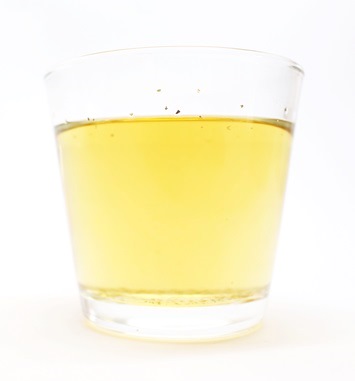
External Issues
- Basil tea may also be applied topically to improve the health of your skin, cleanse it, keep it looking younger and fresher, preventing early signs of aging, such as wrinkles and age spots. Note that drinking this tea may also reduce inflammation that causes premature aging.
- Cleaning your skin with a cooled basil infusion may rid it of dirt, bacteria and microbes. This may help clear up and perhaps prevent its formation by releasing the impurities that get trapped in the skin. It may also relieve skin inflammation and eczema.
- This herbal infusion may bring relief to itching from insect bites. It is said that this tea has a cooling effect, providing both soothing sensation and at the same time its antibacterial properties are helping to treat the skin.
Have a cup of basil tea now!
Basil Tea Side Effects
Basil tea has a great number of health benefits and it is generally considered safe. However, you should be aware of the following information about this tea.
Possible side effects
- It is rare to observe allergic reactions, but be on the lookout for skin reactions when applying this tea topically or possible stomach upset when drinking it. If you experience any of these symptoms, then it is best to not drink this tea.
- Some people may experience a drop in blood pressure or sugar levels that could cause dizziness and general discomfort. If you are taking any medication for blood pressure or diabetes, you should be careful with basil tea as you are more likely to experience this.
Effects of drinking too much
- Do not drink basil tea for long periods of time as basil contains a chemical - estragole - that may increase the risk of liver cancer. So follow the recommended dosage and don t create a habit of drinking this tea.
Avoid in the following situations
- As this tea is said to help regulate blood pressure and sugar levels, it may be unsafe to drink it if you are on medication for hypertension, diabetes or high cholesterol. The herbal tea may exacerbate the effects of the medication and together they could do more harm than good.
- If you are pregnant or breastfeeding, it may be better to avoid drinking this herbal tea in medicinal amounts. Basil is known to act on the liver, the organ responsible for producing hormones and so this herb could have anti-fertility effects. And there simply isn t enough information to guarantee that this tea is safe at this stage in your life.
- If you are undergoing surgery soon, then do not drink this tea at least two weeks before the procedure. It is said that basil may thin blood and therefore cause complications during surgery, such increased risk of internal bleeding.
- With this in mind, if you suffer from any bleeding disorders or are on any anti-clotting medication, then do not drink this tea as it may make your disease worse or exacerbate the effects of your medication.
Drinking Basil Tea
Now all that is left to do is to learn how to make basil tea and soon you will be enjoying your cup of tea.
Quantity: 1-2 tsps (dried) /cup (250ml) or 1-2 tbsp (fresh) /cup (250ml)
Water temperature: boiling (100 C)
Steeping time: 2-5 minutes
Dosage: 3 times a day
Blend with: lemon (juice or peel); cloves; ginger; rosemary; honey
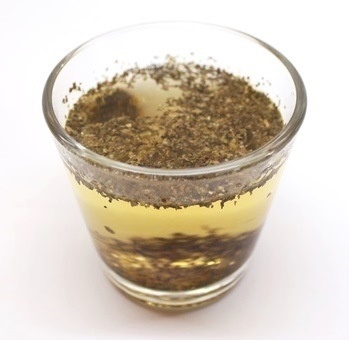
Put the kettle on and let s begin:
-
If you are using dried basil, place 1-2 teaspoons of leaves in a cup.
If you choose to use fresh basil, make sure to thoroughly wash the leaves first, pat them dry and then chop finely to make about 1-2 tablespoons of fresh basil. - Bring water to a boil and then pour it over the leaves. Cover and let the tea steep for 2 minutes (when brewing dried leaves) to about 5 minutes (when using fresh leaves).
- Strain your tea and then add honey to taste. This tea is best enjoyed when warm.
- You may drink up to 3 cups of this tea a day, preferably after the main meals of the day.
Additional Tips
- Create a detox brew by adding lemon peel when steeping the basil leaves. This drink will boost your digestive tract and may help to process food faster getting rid of excessive fatty elements.
- Another common recipe for sweet basil tea is to blend the fresh basil leaves with grated fresh ginger, add a touch of lemon juice for zest and some honey for sweetness. Strain before drinking so that you do not get bits of the ginger. This infusion may be enjoyed both warm and cold.
- If you have the flu, blending basil and ginger in equal parts will help create a detoxifying warm infusion.
- If you are buying fresh basil to make your tea, then look for firm brightly colored leaves. This is a seasoning herb that is very easy to find, just make sure to store it properly in order to preserve the freshness of the leaves.
- If you are considering growing an herb garden, then basil is a great choice. This herb is easy to grow even in a small flower pot and then you can pick the leaves and use them as you need them.
- You can also dry basil leaves at home using a dehydrator or in the microwave. As soon as the leaves are dry, place them in an airtight jar and keep the jar away from sun and humidity.
Buy Your Basil Tea Today!
Click on the image or on the link below to purchase from Starwest Botanicals your organic basil leaf.
This popular seasoning herb is cut and dried in such a way that it is perfect to use everyday in kitchen as well as to brew a healing cup of tea.
Click on the image or on the links below to purchase from Republic of Tea your Strawberry Basil Green Tea Large Iced Tea Pouches.
This is an interesting blend of flavors: green tea flavored with strawberries and basil! Worth a try! Just be aware that this includes tea leaves and therefore there will be some caffeine in this blend.
Basil is much more than a seasoning herb; it may be a source of medicinal components that you may benefit from.
Enjoy a cup of this aromatic tea!
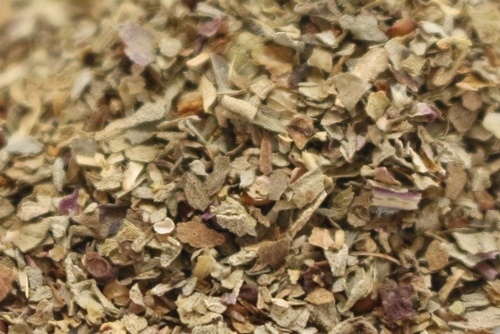
Return from Basil Tea to Herbal Teas
Return to The Right Tea Homepage
”While there's tea there's hope.” - Sir Arthur Wing Pinero (1855-1934), British actor

Do you have a question? Then feel free to Contact Us!
And don’t forget to follow us on Facebook to receive updates, photos and interesting tips and news! Follow us also on Pinterest!
Search Website:
Be healthy
with a wide
choice of herbs!

Prepare your tea!
Try these
Tea Samplers!

Wellness Pack at ArtofTea.com

Award Winning Pack ar ArtofTea.com
Find other
tea time items at ...





